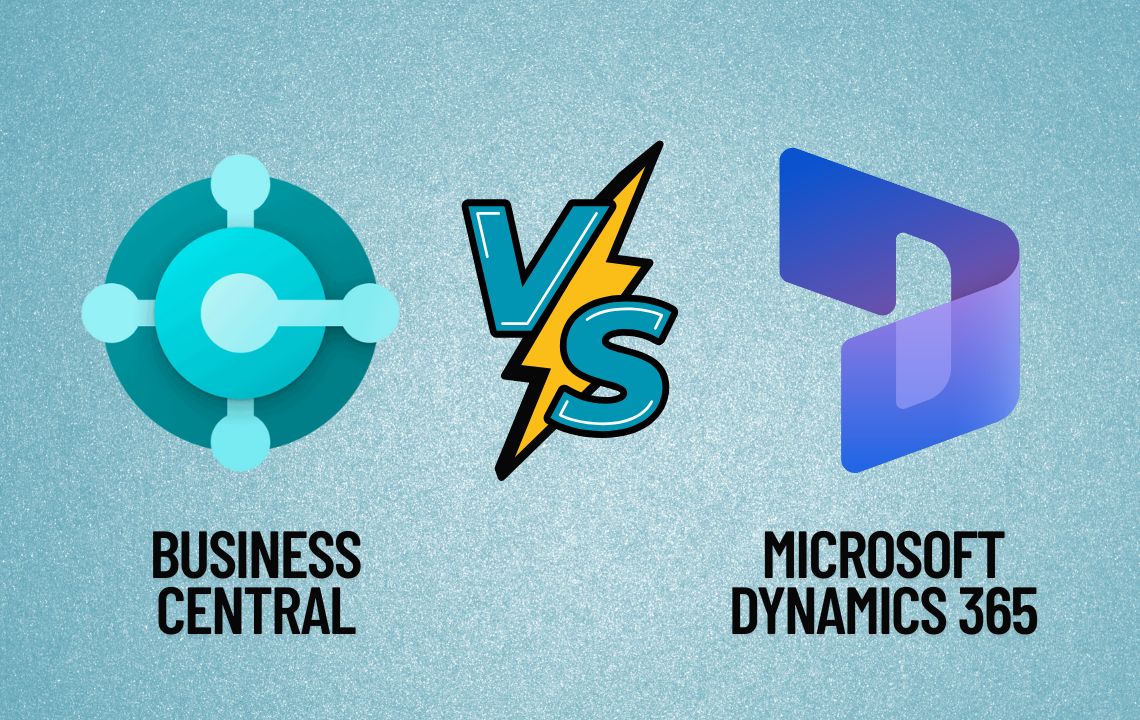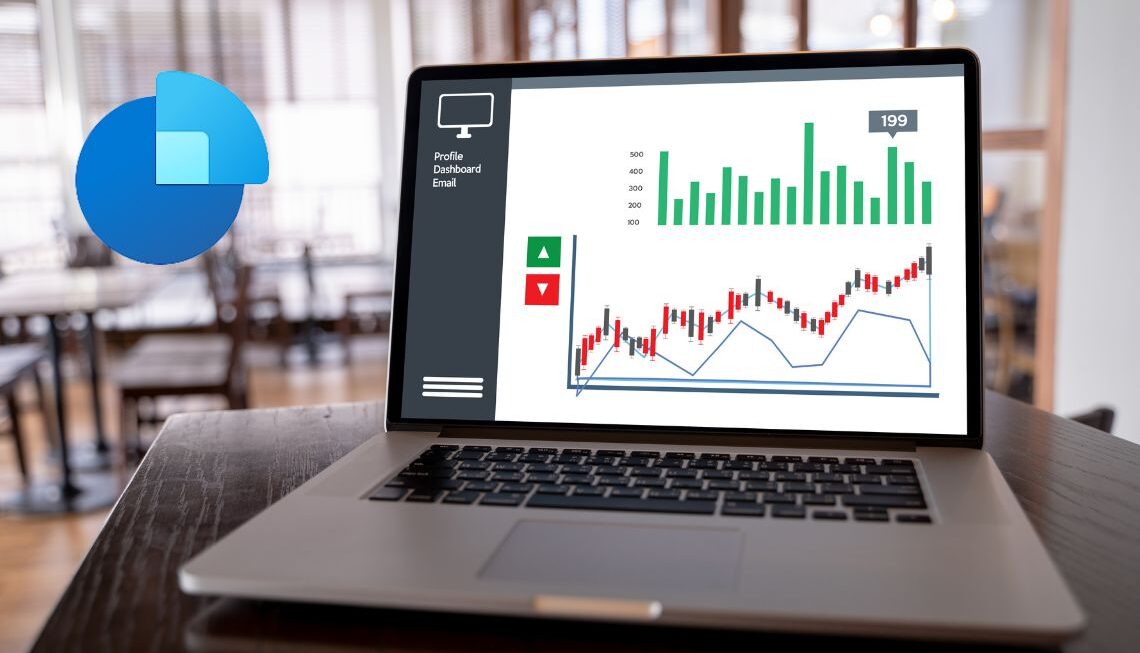Is there any difference between Dynamic 365 Business Central and Dynamic 365? What do you think, is there or there are no differences between Dynamic 365 Business Central and Dynamic 365? Well, to explore this quest let’s read below.
Modern businesses must comprehend the differences between Dynamics 365 Business Central and other Dynamics 365 apps. As businesses expand, they frequently seek the advice of a Dynamics 365 consultant to help them choose between CRM or Finance apps and ERP modules like Business Central.
This blog examines both platforms, evaluates their advantages, and explains the areas in which a Dynamics 365 consultant can be helpful.
Microsoft Business Central vs. Dynamics 365: A Closer Look at Dynamics 365
When comparing Microsoft Business Central and Dynamics 365, it helps to first know what Dynamics 365 brings to the table.
At its core, Dynamics 365 is a suite of business applications that focuses heavily on customer relationship management (CRM). It’s built for organizations that want to strengthen their sales processes, improve service delivery, and gain better visibility into customer interactions.
Rather than functioning as a traditional ERP system, Dynamics 365 is structured around a modular approach.
Businesses can pick and choose from various apps—such as Sales, Customer Service, Marketing, and Field Service—depending on their needs. This flexibility makes it appealing to companies that want to focus on customer engagement while still maintaining integration with other Microsoft tools.
For many organizations, the value of Dynamics 365 lies in its ability to scale and adapt. As companies grow, they can expand their use of the platform without needing to completely overhaul their systems.
Additionally, because it connects so well with Microsoft 365, Teams, and the Power Platform, it supports collaboration and automation across departments.
Companies that want to fully leverage the platform often bring in a Dynamics 365 consultant. These professionals help configure the system, align it with existing workflows, and ensure the setup supports the company’s broader goals.
In many cases, having that expertise on hand can make the difference between a basic rollout and a system that drives real, measurable results.
If your business is focused on sales, customer experience, and relationship-building, Dynamics 365 is built to support that vision.
Microsoft Business Central vs. Dynamics 365: Overview of Dynamics 365 Business Central
Dynamics 365 Business Central is Microsoft’s modern take on enterprise resource planning (ERP) for small and mid-sized businesses. Evolving from the well-known Dynamics NAV platform, Business Central has been reimagined and reintroduced as part of the broader Dynamics 365 suite—bringing more integration, flexibility, and functionality than ever before.
At its core, Business Central is built to connect key operational areas like finance, sales, supply chain, inventory, and service management. It’s designed for companies that want a single solution to streamline daily operations, reduce manual work, and gain clear insights into business performance.
The interface is intuitive, the features are powerful, and it’s all delivered through the cloud—making it easy to access and scalable.
To get the most value out of the platform, many companies work with a Dynamics 365 consultant or hire dedicated Dynamics 365 Business Central developers. These professionals help tailor the solution to match each business’s unique processes, ensuring that implementations go smoothly and that every feature is being used effectively.
The transition from NAV to Business Central shows just how much Microsoft is investing in smarter, more connected ERP systems. Business Central doesn’t just handle internal operations—it also integrates seamlessly with other Microsoft tools like Teams, Excel, Outlook, and Power BI. That means better collaboration, more accurate reporting, and real-time perceptions, all within a familiar ecosystem.
Its cloud-based architecture means businesses can scale up as needed, access data remotely, and stay current without worrying about managing on-premise servers.
And because it’s part of the larger Dynamics 365 platform, it can work hand-in-hand with Microsoft’s CRM tools for a complete business solution.
In today’s fast-moving digital environment, having an ERP system that’s both flexible and future-ready is critical. Dynamics 365 Business Central delivers on that promise—helping businesses modernize operations, make conversant choices, and grow with confidence. With the right guidance from a skilled Dynamics 365 consultant, it can become a cornerstone of your long-term business strategy.
Microsoft Business Central vs. Dynamics 365: Feature Comparison
It’s critical to comprehend the unique functions that Dynamics 365 and Microsoft Business Central each perform within the larger Microsoft ecosystem when comparing Microsoft Business Central vs.
Dynamics 365. By highlighting the key distinctions and advantages between Dynamics 365 Business Central and other Dynamics 365 apps, this comparison assists businesses in selecting the best solution for their unique set of requirements.
| Feature | Dynamics 365 | Dynamics 365 Business Central |
| Core Focus | Advanced Customer Relationship Management (CRM) | Comprehensive Enterprise Resource Planning (ERP) |
| Key Functionalities | – Sales automation- Customer service management- Marketing automation | – Finance management- Sales and service management- Supply chain management |
| Target Audience | – Businesses of all sizes- Ideal for organizations focused on customer engagement and relationship management | – Primarily small to mid-sized businesses- Focused on improving internal operational efficiency |
| Customization & Scalability | Highly customizable and scalable to meet complex enterprise needs | Streamlined for faster implementation, user-friendly, and scalable for growing businesses |
| Integration with Microsoft Products | Seamless integration across the Microsoft ecosystem including Power Platform, Office 365, and Azure | Deep integration with Microsoft 365 tools (Excel, Outlook, Teams), enabling a connected business environment |
The various business functions that Dynamics 365 and Dynamics 365 Business Central fulfills make them appropriate for various company priorities, as this table clearly illustrates.
Microsoft Dynamics 365 excels in settings that prioritize customers. It is perfect for companies looking to improve customer interaction, automate sales processes, and manage service relationships because of its robust CRM applications, which include Dynamics 365 Sales, Customer Service, and Marketing.
Dynamics 365 Business Central, on the other hand, is intended to be a versatile ERP system that simplifies essential functions like supply chain management, inventory control, and finance. Businesses looking to consolidate processes and data into a single, cloud-based system may find it particularly useful.
The choice between Dynamics 365 and Dynamics 365 Business Central ultimately comes down to the main objective of your company. Dynamics 365 CRM modules are ideal if you want to improve customer connections and automate front-end sales procedures. Dynamics 365 Business Central is a superior option, but, if your company need a scalable ERP system to streamline internal operations.
A lot of companies work with a Dynamics 365 consultant to guarantee a smooth configuration and deployment. These professionals maximize return on investment and reduce deployment difficulties by assisting in the selection of appropriate modules, workflow customization, and integration of the solution with your current infrastructure.
When to Choose Microsoft Dynamics 365 vs. Business Central
The primary priorities of your company, such as improving internal processes or fostering stronger customer interactions, will have a significant impact on your decision between Dynamics 365 Business Central and Microsoft Dynamics 365. The following table outlines important situations and considerations to help you make your choice:
| Scenario | Microsoft Dynamics 365 | Dynamics 365 Business Central |
| Business Focus | Customer Relationship Management (CRM) | Internal Business Operations (ERP) |
| Ideal For | -Businesses prioritizing sales, marketing, and customer service- Organizations focused on data-driven customer engagement | – Small to medium-sized businesses seeking unified finance and operations- Companies focused on streamlining internal workflows |
| Key Benefits | -Scalable and customizable CRM capabilities- Powerful tools for customer understandings and engagement | – End-to-end ERP functionalities for financials, inventory, and supply chain- Cloud-based and user-friendly for growing businesses |
| When to Choose | When customer relationship management is central to business success | When financial and operational efficiency is a top priority |
This comparison makes it clearer when you choose Business Central for ERP optimization against Dynamics 365 for its superior CRM.
Using Both Solutions to Get the Most Out of Them
Businesses may find it advantageous in some situations to integrate Dynamics 365 Business Central with CRM apps. This combined strategy provides a cohesive and intelligent business solution by enabling the smooth control of both back-office operations and customer-facing procedures.
Successful integration and configuration in line with your strategic objectives can be ensured by working with a certified Dynamics 365 consultant.
Advantages and Drawbacks of Every Platform
Knowing each platform’s advantages and possible drawbacks is essential for making an informed choice:
Dynamics 365: Advantages and Disadvantages
- Advanced CRM features designed for sales, marketing, and customer support
- Extremely adaptable and scalable for companies of all kinds
- Native connection to the Microsoft ecosystem, which includes Office 365 and Power Platform
- Delivery via the cloud offers accessibility and flexibility.
Limitations:
- Customization complexity may necessitate sophisticated IT resources.
- Small firms may face difficulties due to increased implementation and licensing expenses.
Advantages and Disadvantages of Dynamics 365 Business Central
- Robust ERP features supporting inventory, finance, operations, and supply chain
- A simple user interface that is quick to deploy and simple to use
- Strong connection to Microsoft 365 (Excel, Outlook, and Teams)
- Scalable, cloud-based design is ideal for SMBs.
Limitations:
CRM features are not as extensive as those of full Dynamics 365 CRM applications.
It is more appropriate for small to medium-sized organizations than for huge corporations with intricate requirements.
Microsoft Dynamics 365 vs. Business Central: Pros and Cons
Here’s a summarized comparison to help businesses decide between the two platforms:
| Feature | Dynamics 365 | Dynamics 365 Business Central |
| Core Focus | CRM | ERP |
| Advantages | -Best-in-class CRM tools- Seamless integration- High scalability | -Full ERP suite- Cost-effective for SMBs- Integrated with Office 365 |
| Limitations | – Customization is difficult and expensive, and it needs robust IT support. | -Limited CRM scope- Less suited for large enterprises |
| Best For | -Businesses focused on customer engagement- Those needing powerful sales and marketing tools | -Businesses focusing on internal processes and operations- SMBs needing an all-in-one ERP system |
Final Words….
In summary, your company’s operational needs and growth strategy should guide your choice between Dynamics 365 Business Central and Microsoft Dynamics 365.
If you want to improve customer experiences, automate sales pipelines, and take use of sophisticated CRM features, go with Dynamics 365. If your company requires a single ERP system to handle supply chains, operations, and finances, go with Dynamics 365 Business Central.
With the assistance of a skilled Dynamics 365 consultant, companies looking to integrate both CRM and ERP features may produce a smooth, future-ready company platform.
Frequently Asked Questions
Is MS Business Central better than MS Dynamics?
Your unique priorities and business requirements will determine the best course of action. Dynamics 365 CRM can be the ideal solution for you if maintaining sales and customer connections is your main priority. However, Business Central is the obvious choice if you need a complete ERP solution to oversee all of your operations.
Is Dynamics 365 good for small business?
With its expansive features, sophisticated functionalities, and massive plans, Dynamics 365 is the best business management system for small organizations. Dynamics 365 delivers all of the features a small business may want, including affordability, scalability, and ease of use.
Is coding necessary for Microsoft Dynamics 365?
No, coding isn’t always necessary with Dynamics 365. Many tasks can be completed with low-code and no-code solutions within the platform, particularly through its interface with the Power Platform, even though coding is an option for customization and expansion.
Does the Dynamics 365 suite include Dynamics 365 Business Central?
Indeed, the Dynamics 365 ecosystem includes Dynamics 365 Business Central. Along with smoothly integrating with Dynamics apps and other Microsoft products, it provides ERP capability.
Can I use both Dynamics 365 and Dynamics 365 Business Central together?
Indeed. For a comprehensive business solution, many companies combine Business Central’s ERP features with CRM modules from Dynamics 365.














